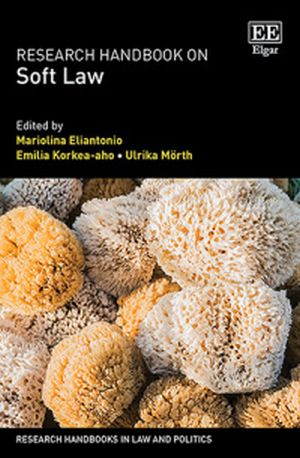
This pioneering Research Handbook provides a comprehensive and in-depth scholarly overview of the field of soft law, exploring the scope of current thinking in the field as well as proposing future pathways for soft law research.
Organized into four broad themes, the Research Handbook offers important and unique insights into the dynamic and complex nature of soft law. The first section delves into the conceptual history and development of soft law. Second, the Handbook explores the disciplinary understandings of soft law, examining how scholars from different fields investigate the topic. The third theme focuses on the public and private actors and institutions involved in soft law-making, providing a detailed analysis of the complex relationships that shape soft law. Finally, the fourth theme explores the role of soft law in addressing major global societal challenges, including among others climate change, gender inequality, and the regulation of artificial intelligence.
This Research Handbook will be a key resource for students and scholars in constitutional and administrative law, public international law, regulation and governance, public administration and policy, and law and politics. Practitioners and policymakers seeking to better understand the role of soft law in domestic and international law, policy and governance will also find this book beneficial.